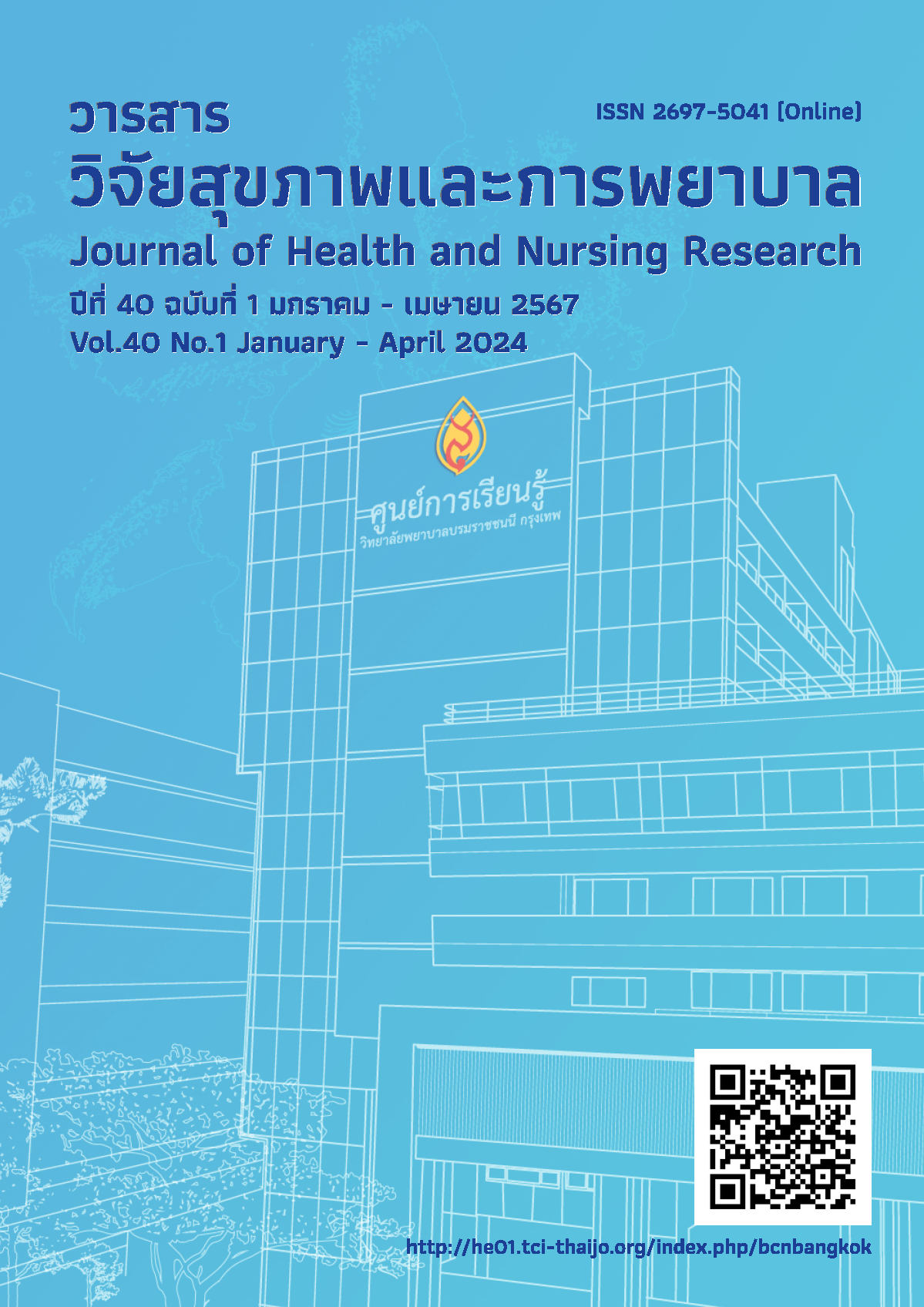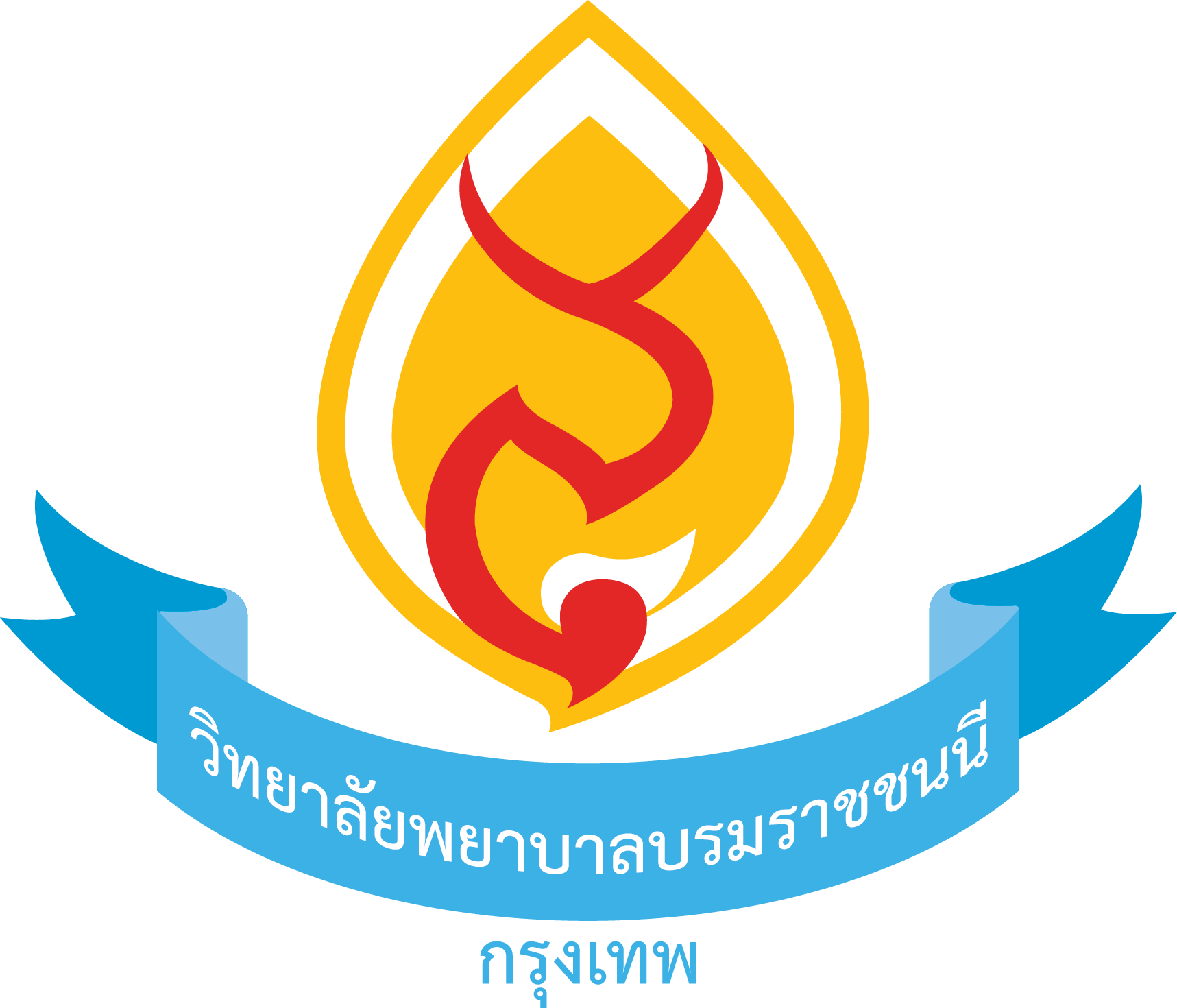The Effect of a Buddhist Spiritual Well-being Promote Programs on the Spiritual Well-being among Caregivers of Stroke Patients in the Community
Keywords:
Programs on the Spiritual Well-Being Among, Caregivers, Stroke DiseaseAbstract
Introduction: Spiritual well-being (SWB) is an important goal of holistic health care and affects the health of caregivers of stroke patients in the community.
Research objectives: To examine the effects of a Buddhist SWB promotion program on the SWB among caregivers of stroke patients in the community.
Research methodology: The study used a quasi-experimental design (one group pre-posttest). The sample consisted of caregivers taking care of stroke patients in the community, aged 25-59 years with 31 samples. The measurements included a personal information questionnaire, a Buddhist SWB questionnaire, and Buddhist SWB promotion programs. Content validity values (IOC) were .67 - 1.00. The Cronbach’s alpha coefficient for the SWB questionnaire was .93. Data were analyzed using descriptive statistics: frequency, percentage,mean, and standard deviation. The Dependent t-test was used to compare the SWB scores.
Results: When comparing mean scores of SWB among caregivers, the mean scores of SWB after participating in the Buddhist SWB program (M = 4.54, SD = .32) were statistically significantly higher than before participating in the program (M = 2.23, SD = .52) (t = 30.48, 95% CI 2.09 - 2.40, p < .001).
Conclusion: The Buddhist SWB promotion program can promote SWB among caregivers of stroke patients in the community.
Implications: Nurses should engage in activities that help promote the SWB of caregivers, including engaging in activities, finding role models, meditation, prayer, worship, practicing religious routines, and sharing knowledge.
Downloads
References
Saitree R, Chaimay B, Woradet S. Activities of daily living among stroke patients . Academic Journal of Community Public Health [Internet] 2019 [cited 2023 Jan 5];5(2):1-13. Available from: https://he02.tci-thaijo.org/index.php/ajcph/article/view/247053/167908. (in Thai)
Division of Non - Communicable Diseases, Ministry of Public Health. Annual report NCDs 2022. Bangkok: Augsorn Graphic Design; 2022. (in Thai)
Sinsap N, Jankra J, Jaiman B. Hypertension in elderly: silence killer should be aware. Journal of Phrapokklao Nursing College, Chanthaburi. 2017;28(1):100-11. (in Thai)
Mitapaam K.Development of a care model for acute stroke patients.Bueng Kan: emergency accident department Seka Hospital [Internet]. 2016 [cited 2023 Jan 5]. Available from: https://shorturl.asia/7vPHC. (in Thai)
Department of Disease Control, Ministry of Public Health. Stroke [Internet]. 2020 [cited 2023 Jan 5]. Available from: https://ddc.moph.go.th/disease.php. (in Thai)
Kenthongdee V, Kaewkerd O, Chayasit Y, Chaitonthueg T, Armartpundit T, Sanrang P, et al. Factors affecting the spiritual well-being of the elderly. Journal of Environmental and Community Health 2022;7(1):1-8. (in Thai)
Nimu N, Balthip K, Buapetch A. Predicting factors of spiritual well-being in Muslim patients with chronic diseases in the comeback stage of chronic trajectory illness model. Songklanagarind Journal of Nursing 2021;41(1):88-103. (in Thai)
O’Brien ME. The need for spiritual integrity. In: Yura H, Walsh M, editors. Human needs and the nursing process. Norwalk: Appleton; 2011. p. 82-115.
Faul F, Erdfelder E, Lang AG, Buchner A. G*power 3: a flexible sta-tistical power analysis program for the social, behavioral, and biomedical sciences. Behavior Research Methods 2007;39(2):175-91.
Sangthongdee J. A spiritual well-being care-taking program of relatives of end-stage cancer patient base on buddhist psychology. Journal of Social Science and Buddhistic Anthropology 2020;5(4):336-50. (in Thai)
Rattanil P, Ketsapichayawattana J. Effects of Buddhist spiritual care on the spiritual well-being of elderly patients with end-stage cancer. Journal of Nursing Science Chulalongkorn University. 2016;28(3):31-43. (in Thai)
Junma S, Tipwareerom W. Juntarawijit Y. Effects of the social support program on stress and spiritual well – being among care givers of end stage cancer patient [master’s thesis]. Phitsanulok: Naresuan University; 2021. (in Thai)
Panpadung S, Nilmanat K, Kitrungroj L. Impact of a buddhism-based spiritual wellbeing promotion programme on the spiritual wellbeing of family caretakers responsible for hospitalized advanced gynaecological cancer patients. Thai Journal of Nursing Thailand 2015;30(1):16-28. (in Thai)
Downloads
Published
How to Cite
Issue
Section
License
Copyright (c) 2024 Journal of Health and Nursing Research (Journal of Boromarajonani College of Nursing, Bangkok)

This work is licensed under a Creative Commons Attribution-NonCommercial 4.0 International License.
Article published Is the copyright of the Journal of Health and Nursing Research (Boromarajonani College of Nursing, Bangkok) Cannot be republished in other journals


















